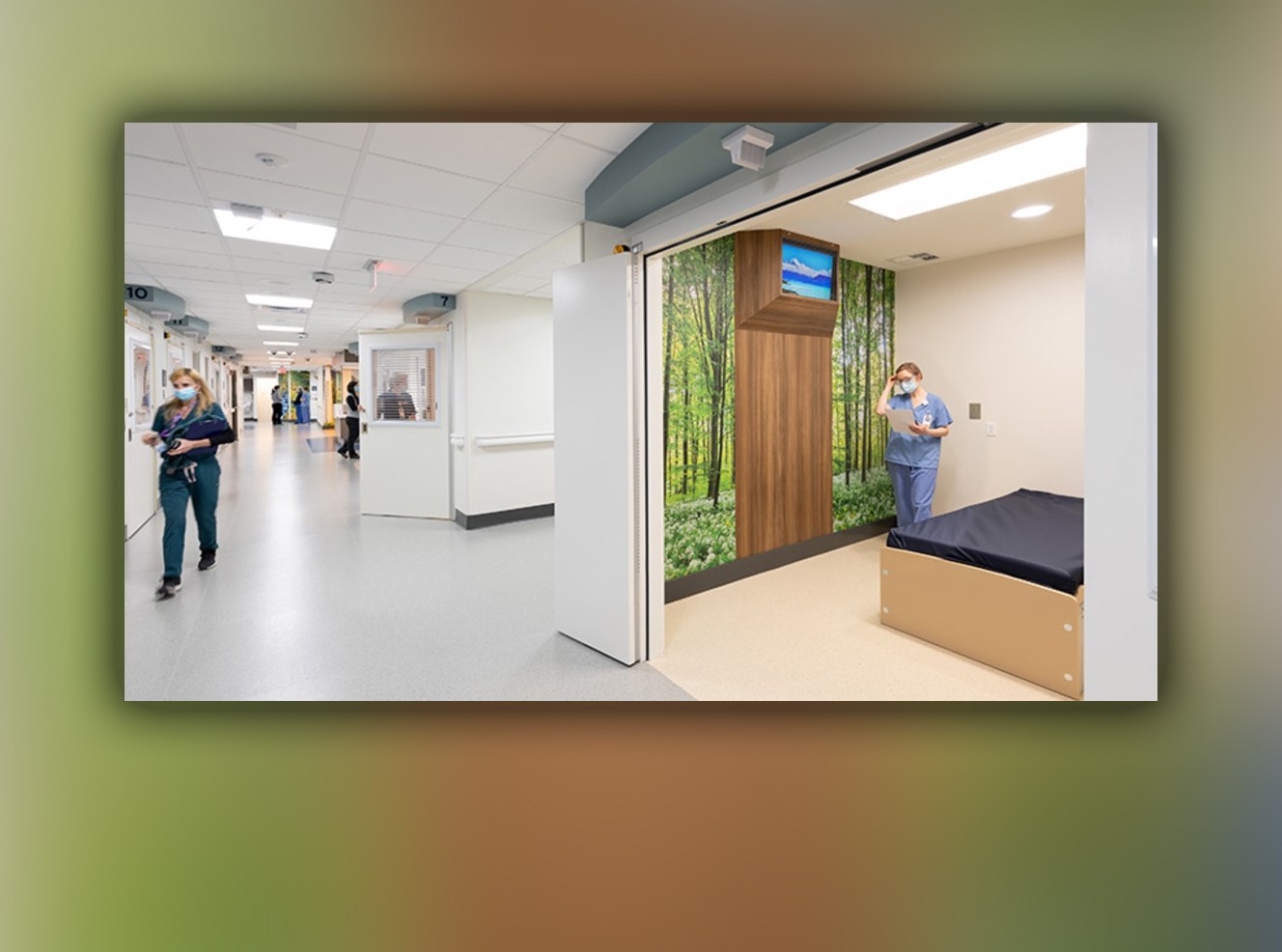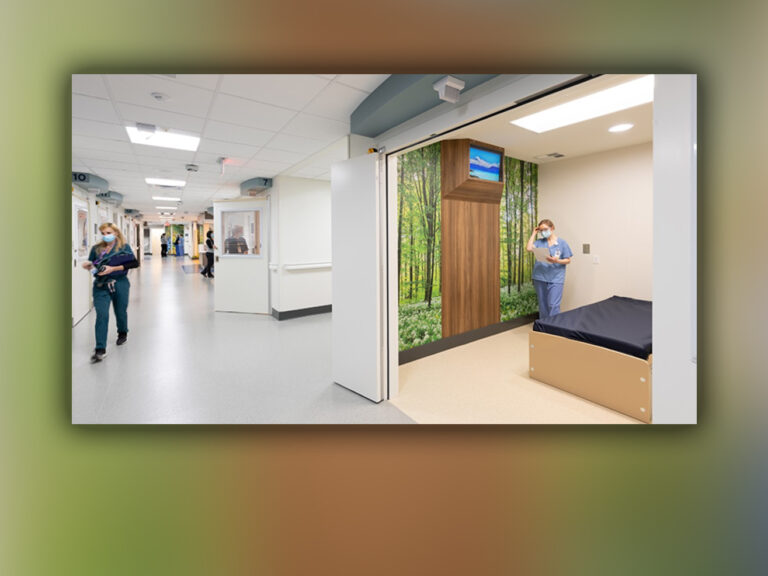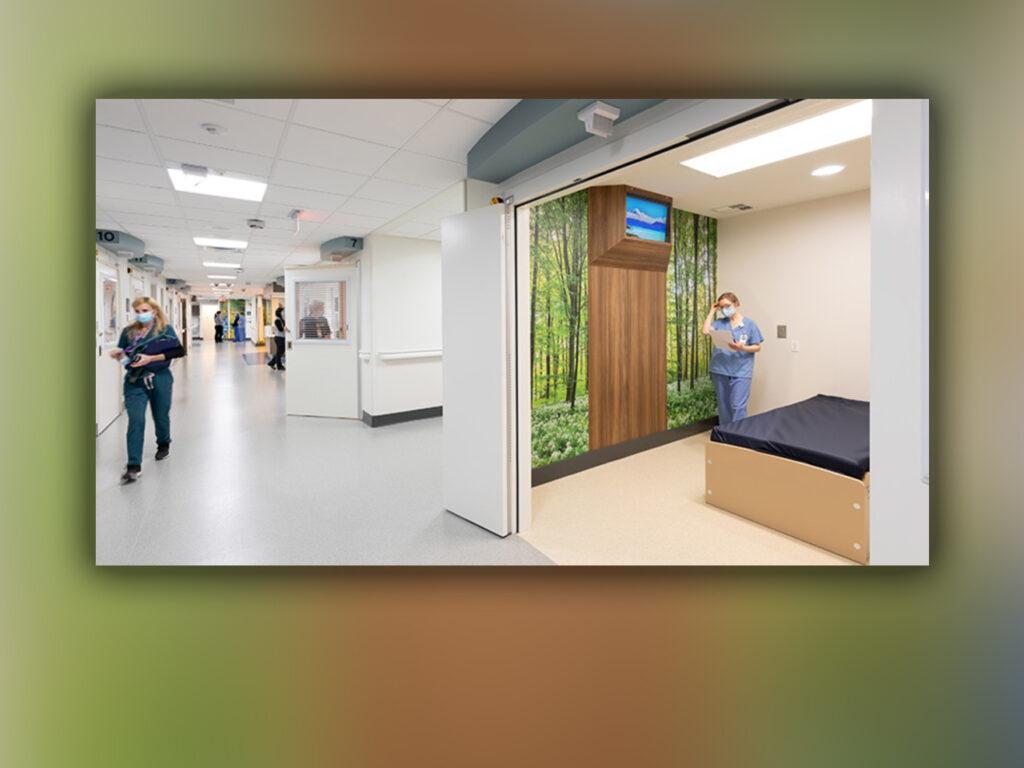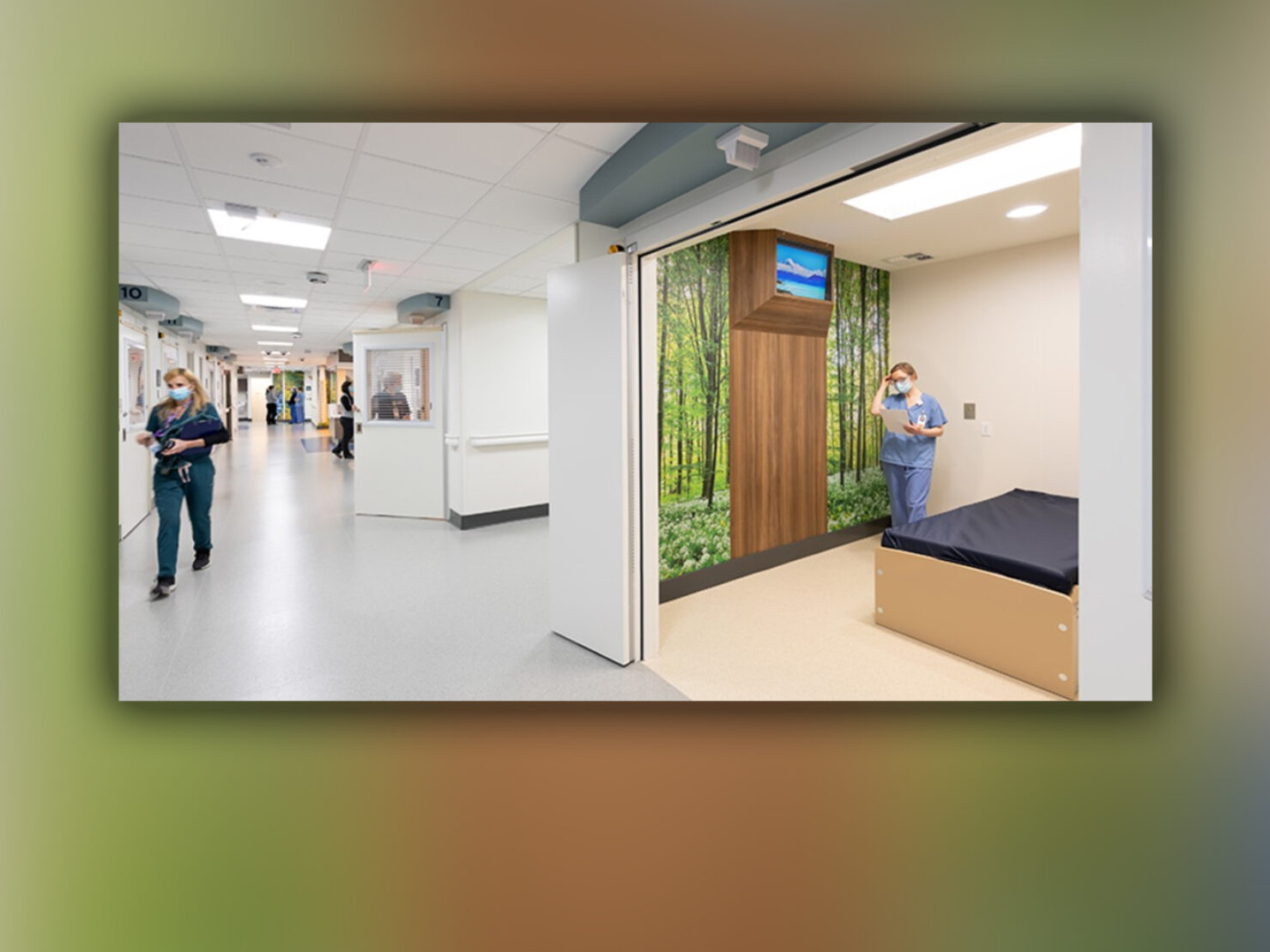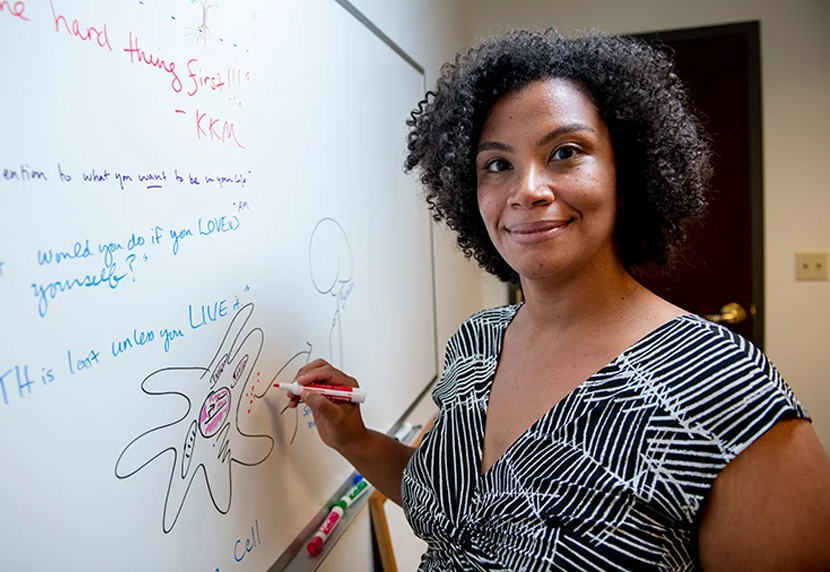With global levels of anxiety and depression continuing to increase at alarming rates among children and adolescents, emergency psychiatric care is needed more than ever before. At Massachusetts General Hospital, experts in the Acute Psychiatry Service (APS) within the Emergency Department (ED) — one of the busiest in the northeast — provide urgent, multidisciplinary support to more than 7,000 children, teenagers and adults each year who are in crisis.
The APS is thoughtfully designed to offer a private, safe and calming space with 20 patient rooms. Here, psychiatric specialists provide timely assessment and therapeutic interventions away from the noise, busyness and bright lights of the ED. Children boarding in the APS awaiting hospitalization are among the most vulnerable patients served and they require specialized support. The APS includes psychiatric care, child life services, occupational therapy, nursing and mental health support and therapy with an APS Child Psychologist.
With these specialty services, children are receiving higher-quality mental health treatment and care, and many have experienced shorter lengths of stay in the ED. They are also being discharged to their homes with resources for their families to better understand their needs long-term. All of these successes are possible in large part because of philanthropy.
“Support from our community of donors ensures we can offer this full spectrum of services during this national mental health crisis,” says Abigail Donovan, MD, medical director of the APS and director of Child Psychiatry Emergency Services at Mass General. “This is a care differentiator here that does not exist in many other hospitals — and the need for this specialty psychiatric support at Mass General is not going away anytime soon.”
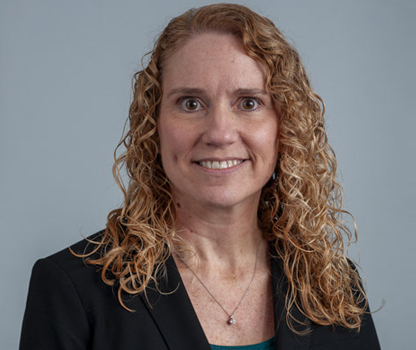
Patient Impact Spotlight
Recently, a 12-year-old patient came to the ED at Mass General because she had taken too much headache medicine. Her parents were worried about the potential toxicity of the dose, but not about her mental health, as she had never shown any signs of mental distress.
However, when the patient spoke with the APS child psychiatrist and child psychologist, she eventually shared she had been having daily thoughts of suicide and engaging in self-injurious behavior for the past eight months. Even though it was upsetting to open up, she shared that she felt like a weight had been lifted, and she went on to receive additional inpatient psychiatric care. The APS child psychiatrist and child psychologist also met with her parents, who were surprised and worried about their daughter, to help educate and empower them with a new plan to support her.
“Our goals for our patients are to help them feel seen and validated,” says Dr. Donovan. “We are creating an environment where our patients feel like they are understood and supported, no matter what they are experiencing in that moment. We are letting them know that it is ok to struggle, it is ok to ask for help and we will get them the help they need. If they remember that in the future, that it is ok to ask for help, we’ve done our job.”
A New Model of Care
The demand for inpatient psychiatric treatment can exceed the capacity available in Massachusetts, which results in many patients staying in the APS for days as they wait for an inpatient psychiatric hospital bed.
To ensure the APS can meet the demand for its services, it seeks to continue expanding its staff with more mental health professionals from a variety of disciplines, while also creating innovative brief treatments that can be deployed during an emergency department stay and potentially decrease the need for inpatient hospitalization.
Philanthropy will continue to play a critical role in allowing the APS to leverage these successes into a sustainable model for other hospitals, so patients have access to this type of care wherever they go. Says Dr. Donovan, “What if it didn’t matter what emergency department you went to because you were always guaranteed this type of care? That is what we are ultimately working toward.”
To make a gift or learn more about supporting children and families in crisis with lifesaving psychiatric care, as well as education and support for their loved ones, please contact us.
